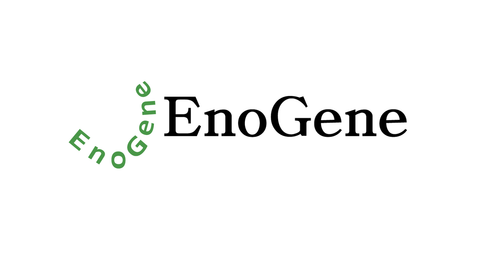Product Description
PUM1 Antibody (Y83) [APR05935G] | Leading Biology
Product Category: Polyclonal Antibodies
Host: Rabbit
Species Reactivity: H
Specificity: This PUM1 antibody is generated from rabbits immunized with a KLH conjugated synthetic peptide between 62-91 amino acids from human PUM1.
Cellular Localisation: Cytoplasm. Cytoplasm, P-body. Cytoplasmic granule. Note=Recruited to cytoplasmic stress granules upon viral infection.
Molecular Weight: 126473
Clone: Polyclonal
Gene Name: PUM1 (HGNC:14957)
Gene ID: 9698
Function: Sequence-specific RNA-binding protein that acts as a post- transcriptional repressor by binding the 3'-UTR of mRNA targets. Binds to an RNA consensus sequence, the Pumilio Response Element (PRE), 5'- UGUANAUA-3', that is related to the Nanos Response Element (NRE) (PubMed:21572425, PubMed:18328718, PubMed:21653694, PubMed:21397187) . Mediates post-transcriptional repression of transcripts via different mechanisms: acts via direct recruitment of the CCR4-POP2-NOT deadenylase leading to translational inhibition and mRNA degradation (PubMed:22955276) . Also mediates deadenylation-independent repression by promoting accessibility of miRNAs (PubMed:18776931, PubMed:20818387, PubMed:20860814, PubMed:22345517) . Following growth factor stimulation, phosphorylated and binds to the 3'-UTR of CDKN1B/p27 mRNA, inducing a local conformational change that exposes miRNA-binding sites, promoting association of miR-221 and miR-222, efficient suppression of CDKN1B/p27 expression, and rapid entry to the cell cycle (PubMed:20818387) . Acts as a post-transcriptional repressor of E2F3 mRNAs by binding to its 3'- UTR and facilitating miRNA regulation (PubMed:22345517, PubMed:29474920) . Represses a program of genes necessary to maintain genomic stability such as key mitotic, DNA repair and DNA replication factors. Its ability to repress those target mRNAs is regulated by the lncRNA NORAD (non-coding RNA activated by DNA damage) which, due to its high abundance and multitude of PUMILIO binding sites, is able to sequester a significant fraction of PUM1 and PUM2 in the cytoplasm (PubMed:26724866) . Involved in neuronal functions by regulating ATXN1 mRNA levels: acts by binding to the 3'-UTR of ATXN1 transcripts, leading to their down-regulation independently of the miRNA machinery (PubMed:25768905, PubMed:29474920) . Plays a role in cytoplasmic sensing of viral infection (PubMed:25340845) . In testis, acts as a post- transcriptional regulator of spermatogenesis by binding to the 3'-UTR of mRNAs coding for regulators of p53/TP53. Involved in embryonic stem cell renewal by facilitating the exit from the ground state: acts by targeting mRNAs coding for naive pluripotency transcription factors and accelerates their down-regulation at the onset of differentiation (By similarity) . Binds specifically to miRNA MIR199A precursor, with PUM2, regulates miRNA MIR199A expression at a postranscriptional level (PubMed:28431233) .
Summary: Tissue Location: Expressed in brain, heart, kidney, muscle, intestine and stomach. Not expressed in cerebellum, corpus callosum, caudate nucleus, hippocampus, medulla oblongata and putamen. Expressed in all fetal tissues tested.
Form: Purified polyclonal antibody supplied in PBS with 0.09% (W/V) sodium azide. This antibody is purified through a protein A column, followed by peptide affinity purification.
Storage: Maintain refrigerated at 2-8°C for up to 2 weeks. For long term storage store at -20°C in small aliquots to prevent freeze-thaw cycles.
Application: WB, IHC-P
Dilution: WB--1:1000 IHC-P--1:100~500
Synonyms: Pumilio homolog 1, HsPUM, Pumilio-1, PUM1, KIAA0099, PUMH1
 Euro
Euro
 USD
USD
 British Pound
British Pound
 NULL
NULL

![PUM1 Antibody (Y83) [APR05935G] PUM1 Antibody (Y83) [APR05935G]](https://cdn11.bigcommerce.com/s-452hpg8iuh/images/stencil/1280x1280/products/868170/1160237/logo__92149.1659788186__13780.1659864263.png?c=2)
![PUM1 Antibody (Y83) [APR05935G] PUM1 Antibody (Y83) [APR05935G]](https://cdn11.bigcommerce.com/s-452hpg8iuh/images/stencil/100x100/products/868170/1160237/logo__92149.1659788186__13780.1659864263.png?c=2)
![PUM1 Antibody (Y83) [APR05935G] PUM1 Antibody (Y83) [APR05935G]](https://cdn11.bigcommerce.com/s-452hpg8iuh/images/stencil/500x659/products/868170/1160237/logo__92149.1659788186__13780.1659864263.png?c=2)




![BLVRA Antibody (Center Y83) [APR10864G] BLVRA Antibody (Center Y83) [APR10864G]](https://cdn11.bigcommerce.com/s-452hpg8iuh/images/stencil/500x659/products/869104/1161171/logo__92149.1659788186__37682.1659865371.png?c=2)



![Human-FOSL2 (Y83) Antibody [APR32906G] Human-FOSL2 (Y83) Antibody [APR32906G]](https://cdn11.bigcommerce.com/s-452hpg8iuh/images/stencil/500x659/products/873151/1165218/logo__92149.1659788186__82583.1659868945.png?c=2)